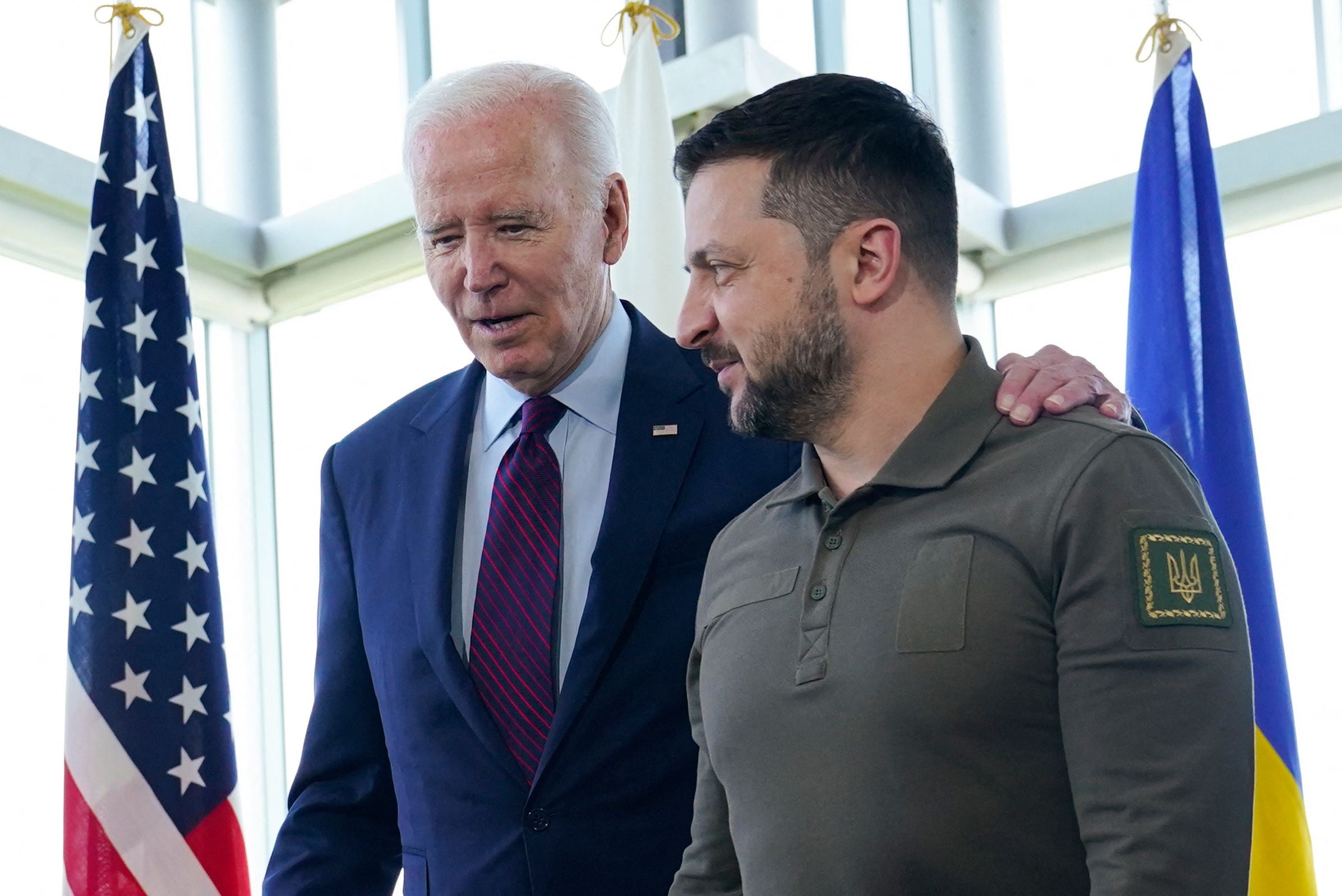Biden is considering sending controversial cluster munitions to help Ukraine
Over 100 countries have signed a treaty banning the use of dual-purpose improved conventional munitions (DPICMs)
Your support helps us to tell the story
From reproductive rights to climate change to Big Tech, The Independent is on the ground when the story is developing. Whether it's investigating the financials of Elon Musk's pro-Trump PAC or producing our latest documentary, 'The A Word', which shines a light on the American women fighting for reproductive rights, we know how important it is to parse out the facts from the messaging.
At such a critical moment in US history, we need reporters on the ground. Your donation allows us to keep sending journalists to speak to both sides of the story.
The Independent is trusted by Americans across the entire political spectrum. And unlike many other quality news outlets, we choose not to lock Americans out of our reporting and analysis with paywalls. We believe quality journalism should be available to everyone, paid for by those who can afford it.
Your support makes all the difference.The Biden administration is considering sending controversial cluster munition warheads to Ukraine, with people familiar with the matter revealing that an official announcement is expected soon.
Earlier this week, President Joe Biden announced an additional $500m in military aid for Ukraine, including more than 50 heavily armoured vehicles and missiles for their air defence system. These reinforcements are intended to fortify Ukraine’s counteroffensive launched earlier this month.
On Thursday, a US official told CNN the White House is now also considering sending the munitions – somethig that would have a “significiant battlefield impact”.
Dual-purpose improved conventional munitions (DPICMs) are surface-to-surface warheads that burst and disperse multiple, smaller bomblets over a wide area.
They are banned by over 100 countries under the Convention on Cluster Munitions, and their use is controversial because of the risks they pose to civilians both during and after an attack.
Unexploded bomblets can injure or kill unintended targets and removing them is expensive.
The US’s position on sending DPICMs is believed to have shifted last week, when a senior Pentagon official said they would be “useful” to Ukraine.
“Our military analysts have confirmed that DPICMs would be useful, especially against dug-in Russian positions on the battlefield,” Laura Cooper, the deputy assistant secretary of defense for Russia, Ukraine and Eurasia, told the House Foreign Affairs committee.
While the US, Ukraine, and Russia haven’t signed the treaty banning the use of DPICMs, several key US allies such as the UK, France, and Germany have.
This is reportedly one of the reasons why the Biden administration has held off on supplying Ukraine with these warheads up to now.
According to CNN, the US government has now been able to alleviate some allies’ concerns, as Kyiv’s counteroffensive continues at a slower pace than expected.

The US has also been able to highlight how both Ukraine and Russia have used DPICMs since the war began last February, the official told the network.
An investigation by Human Rights Watch found that Russia used the munitions on civilian targets, including parks, clinics, and a cultural centre in Ukraine.
Meanwhile, Ukraine has recently started using munitions supplied by Turkey in its fight against Russian invasion.
The report that the US is considering sending the warheads comes after a weekend of insurrection in Russia, as Ukrainian and Western leaders sort through the impact of Yevgeny Prigozhin’s short-lived rebellion against Vladimir Putin.
Putin and the Kremlin are now looking to take control of the Wagner group of mercenaries and turn it into a state-owned enterprise.




Join our commenting forum
Join thought-provoking conversations, follow other Independent readers and see their replies
Comments